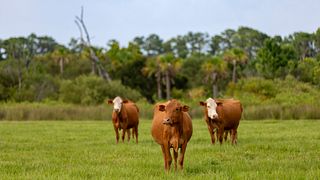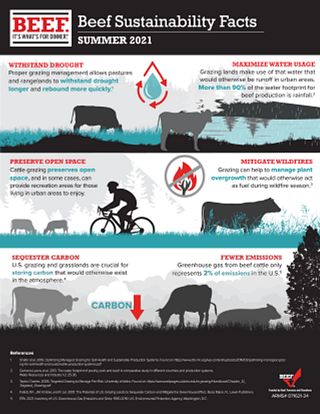Beef's Sustainability story
While the U.S. already produces the most sustainable beef in the world through decades of improvement and innovation, U.S. cattle farmers and ranchers are committed to producing high-quality, sustainable beef for generations to come. Since the 1960s, the U.S. beef industry has reduced emissions by 40% while producing 60% more beef,1,2 and according to the Environmental Protection Agency, greenhouse gas from beef cattle only represents 2% of emissions in the U.S.3
Learn about beef sustainabilty
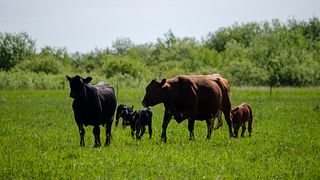
CATTLE: THE ULTIMATE "UPCYCLERS"
What is “upcycling”? When cattle graze, their ruminant digestive system turns things humans can’t eat, like grass, other forages, and byproducts - such as distillers grain, cottonseed, and beet pulp - into high quality protein and micronutrients for human consumption – a process called upcycling.
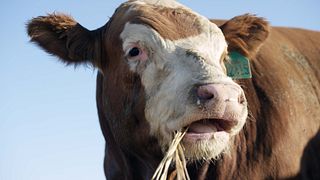
beef sustainability
To the beef community, sustainability comprises much more than environmental considerations. Today, a sustainable food supply balances efficient production with environmental, social and economic impacts.
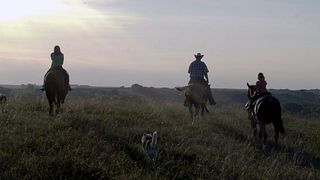
cattlemen and the environment
Beef is produced using fewer resources than before. Ranchers work hard to feed a growing population, while reducing water use, care for the land, and protect the environment.
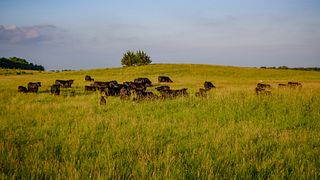
BEEF’S ROLE IN GREENHOUSE GAS EMISSIONS
Contrary to some of the misconceptions about beef’s role in greenhouse gas emissions, cattle-generated gases are completely natural, are very different from the types of gasses stemming from fossil fuel emissions, and are on the decline.
In the News
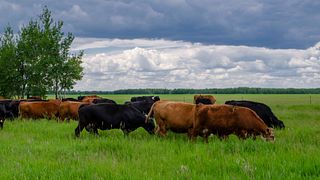
Choosing Sustainability Over Steak? Think Again (And Fire Up the Grill)
Mpls.St.Paul Magazine
What do you get when you put a renowned dietitian and rural Minnesota farmer together in a room? An equally emphatic belief that yes, you can have your beef—and eat it, too.
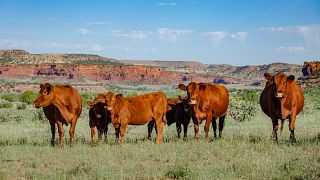
Beef Is Tonight’s Sustainable Dinner Option
5280, Denver
You may be surprised to learn that beef production in the U.S. has a lot of positive impacts on the environment.
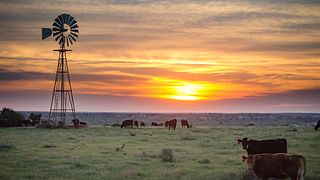
Beef. It’s What’s for Your Sustainable Summer Barbecue
SeattleMet
Enjoying burgers, brisket, and shish kebabs is more eco-conscious than you think.sustainability Press Releases
Cattle ranchers share their sustainability story
Infographics
Rethink The Ranch
See how beef farmers and ranchers around the country are implementing land-saving, wildlife-preserving, and award-winning environmental efforts.
Click here to Contact John Robinson, Sr. Vice President of Membership and Communications
- USDA-NASS Quick Stats Tools. Available at: https://quickstats.nass.usda.gov/results/3AC161F7-F361-3A66-9B6C-2E1220FEBF52?pivot=short_desc
- U.N. Food and Agriculture Organization. FAOSTAT Database – Food and agricultural data. Available at: http://www.fao.org/faostat/en/#home
- EPA. 2019. Inventory of U. S. Greenhouse Gas Emissions and Sinks: 1990-2017. U. S. Environmental Protection Agency, Washington, D. C.
